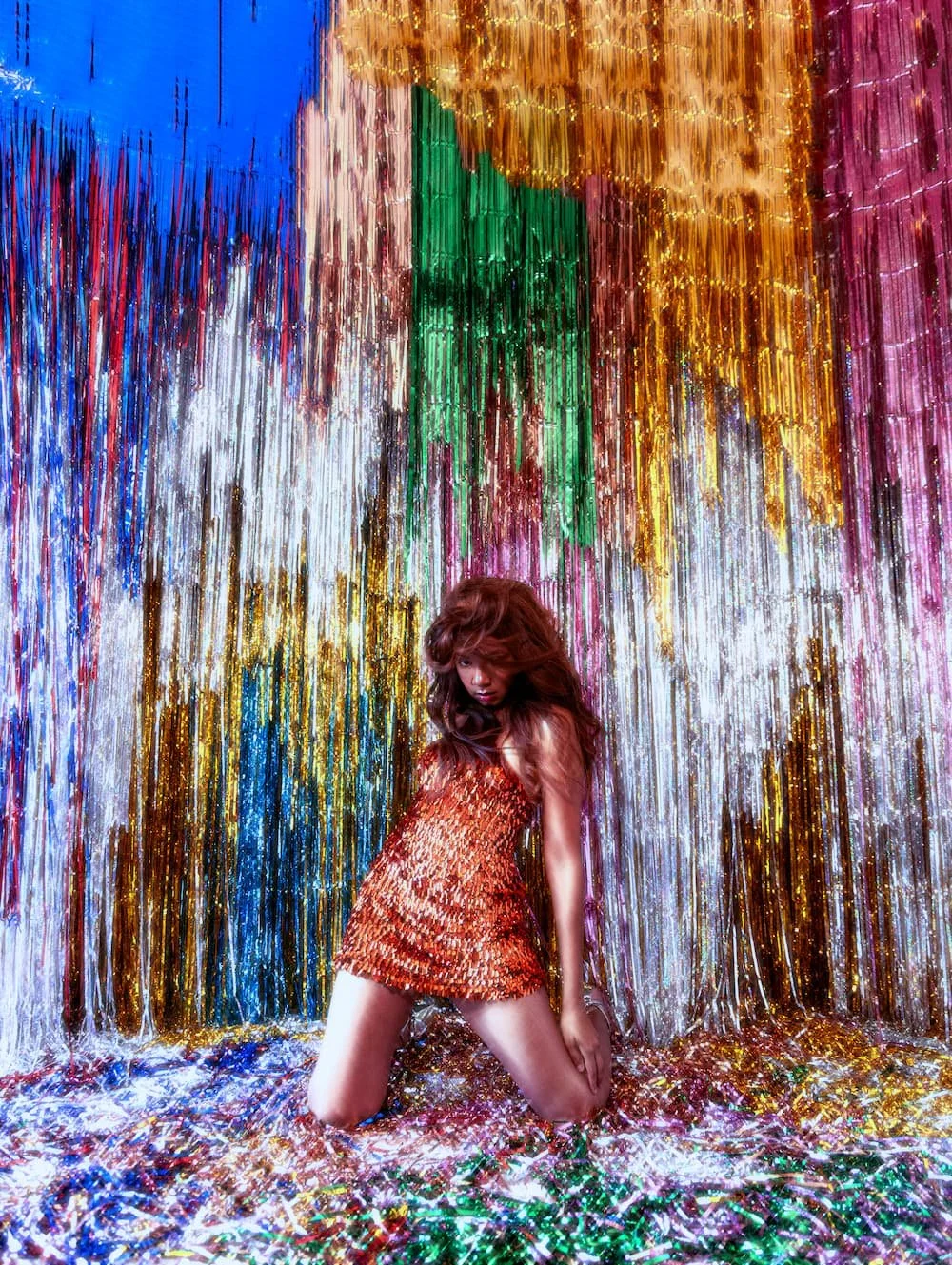REVIEW - Tear Along The Dotted Line
It made me laugh, smile, almost cry, recoil, acknowledge, look back, inside and beyond. Tear Along the Dotted Line is a rough journey through the life of older millennials, the ones who can now look back at the idea they had of the world and themselves as adults when they were kids, and find it probably clashing with the reality they’re living in. Created by an Italian cartoonist, this show is a poetic dive into our generation’s consciousness. The whole series takes place in two days, during which three people in their late 30s are setting to travel someplace to do something that seems important but tedious.
Zero, the main character, is a Roman cartoonist who, when younger, thought one just needed to tear along the dotted line they were destined to follow in their life, and everything would get into place. He’s surrounded by his two childhood friends, Secco, whose carelessness is like a breath of fresh air all throughout, and Sara, a hardworking girl who once had a dream she hasn’t managed to realise yet. We get to know them through present time scenes and Zero’s flashbacks, where we also meet Alice, a potential lover that never became one. “Everything’s going as planned, except that…” followed by a list of incidents is a line repeated by Zero every now and then during their journey, and it becomes a trope for the whole show.
Zero’s conscience takes the shape of a deadpan, sarcastic armadillo, with which he has the most hilarious conversations, sometimes showing bits of wisdom, sometimes revealing the weirdest and darkest aspects of his subconscious, functioning as a way for Zero to detach himself from some of his choices and feel less guilty. When remembering past events, he mimics the voices of other characters, and that of Alice is simply robotic. That’s a way to tell us this is one side of the story, and recollections are often our own reconstructions, which can later deceive us. Each episode is around 20 minutes long, but the show deals very well with so many issues in such a short time, while maintaining the irony and light-heartedness all throughout - despite the final twist that left many heartbroken.
Tear Along the Dotted Line represents the irreverent, racist and sexist aspects of Italian society. Zero is obsessed by the idea of fulfilling his gender role, although he feels inadequate, and his language seems to be intrinsically influenced by a patriarchal societal structure. We also see him unnecessarily get upset at an Asian guy, who he calls Bengali, but that’s a generalisation Italians tend to make of Asian brown people. Also, a few jokes about Jesuits, Aryans and the Church have been kind of sugar coated in English. The only one who seems to set Zero straight and deconstruct his way of thinking is Sara. “What a terrible subconscious I have” is not only one of Zero’s thoughts, but it becomes our own while watching the show. We find ourselves laughing at and tacitly agreeing with most of what he does and says, although we know, at times, it’s wrong.
Zero rummages through his past to find out his existence has been based on questionable assumptions he was led to make, and to realise the choices he has to make became harder growing up because of the responsibility he feels over the effects these have on other people’s lives too. Zero wants to step out of his comfort zone, but the disillusion that comes with age pushes him to fear he might only mess it up, so he sticks to what he knows. Our generation is one of uncertainty, and it seems like the future of the world and the environment entirely depends on our choices, which is probably what gives us a sense of never-ending anxiety. Secco lives well because he doesn’t think of the impact his choices have, and that’s represented by his “shall we go get ice cream?” while the world around is on fire. That’s why I was slightly disappointed when I noticed this line was cut out on some occasions in the British translation.
The present is the only time Secco lives in, and we all, deep down, want to be a bit like him. But is he the happiest or just the least fazed? A line often repeated by Zero is “the question throws me”, which symbolises his fear of answers to things he’d better leave in the unknown. At times, we might look at Zero almost with contempt, he becomes the scapegoat, and it all has a cathartic effect on us worthy of a Greek tragedy. By chastising him, we end up chastising ourselves for our fears and all that we can’t understand, and then realise we blame ourselves for things we couldn’t do much about, because it’s easier than finding the real answer as to why it went like that. Zero is our armadillo, he says what we don’t even have the courage to think of sometimes, he takes the sting out of it with some irony and serves it to us all on a silver platter.
I had a discussion with a friend, who believes the socio-economic and political context of the show doesn’t matter, but I had to disagree. Yes, Zero’s and the other characters’ emotions are universal, but he and his friends tried to tear along the dotted line of a system that doesn’t give many opportunities to the younger generations. Even the original translation of one of Zero’s lines, “finding a job is hard”, is actually about how shit public exams are to get a job such as teaching in Italy, something that doesn’t exist in the UK. The original language is Roman dialect, and the use of it gives out a lot about character, so British Zero sounding posh got on my nerves. Some idiomatic expressions, too, have been loosely translated, losing their effective meaning; for instance, Zero imagines himself on his deathbed while his grandson asks him if he’s ever been truly happy, but “pijà bene” means more “to be on a roll, to have a good day”, and grandpa Zero dying without replying ironically expresses how he never even felt the slightest positive feeling.
Carmen the gypsy shouting “li mortacci tua” really sounds like some curse in a mystical language, but it’s actually a Roman way to say “blast you”, and there are variants of it in a few southern Italian dialects. Many posters and street graffiti in the background, as well as Netflics movie titles and categories in Roman, add layers to the story but don’t get translated. The colloquialisms, which at times serve to add a touch of realism to the series, others to make it absurdly hilarious, aren’t always successfully rendered in English – although I believe the translators did their best in an attempt to convey the same meaning. To mention a few, Zero imagines the Japanese man cuss at the TV in Roman; Da Vinci, to him, is a compatriot that speaks Roman to the NASA employee, who also replies in Roman. For the British, Da Vinci becomes an English-speaking man with an Italian accent, and the NASA man turns into an ordinary English-speaking scientist. So the irony that’s scattered throughout the episodes can’t always be picked up by a foreign audience.
Apart from becoming one of my favourites, the song playing in Zero’s car when he drives back from Alice’s place late at night sums up what I got from this show, and his absent-mindedness while listening to it is emblematic. You can listen and read the lyrics translation here. (Fauve ≠ - Haut les cœurs lyrics + English translation (lyricstranslate.com)) We’re all “black belts in avoiding life” at times, and we might cause too much harm by standing still, stuck in overthinking and blindness. But even our conscience, in the end, tells us not to be so hard on ourselves all the time, because there’s no simple reason why things happen the way they do.
Written by Prudenza Lacriola
Prudenza graduated in English Literature and Creative Writing, and she’s now completing her MA in Writing for Stage and Broadcast Media at the Royal Central School of Speech and Drama. She’s tried different jobs, but can’t stick to a 9 to 5, so at night you can find her serving beer at the pub. She spends her free time (over)thinking, taking walks in nature, and planning the next 5 projects she’s going to work on.







